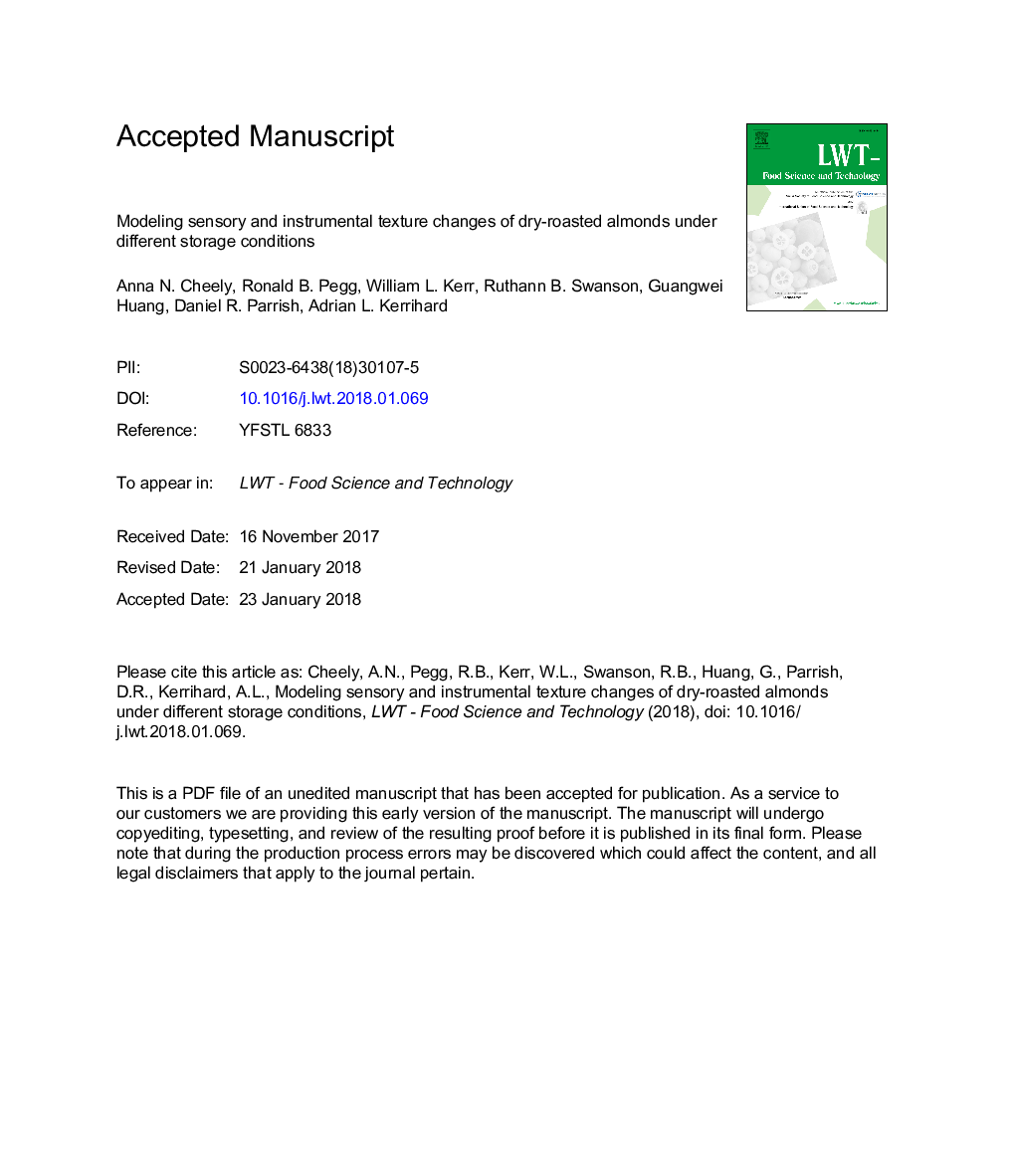| Article ID | Journal | Published Year | Pages | File Type |
|---|---|---|---|---|
| 8891977 | LWT - Food Science and Technology | 2018 | 31 Pages |
Abstract
The rejection of roasted almonds by consumers is often due to the development of rancidity or textural changes. Dry-roasted 'Nonpareil' almonds were stored in polypropylene bags (PPB) in environmental chambers at 15, 25, 35â¯Â°C and 50 or 65% relative humidity (RH) or at 4â¯Â°C without RH control, and in high barrier bags (HBB) at 4, 15, 25, and 35â¯Â°C without RH control. Descriptive and consumer sensory testing as well as instrumental texture analyses were conducted on the samples over 16 months. Of the 11 samples, four (PPB/25â¯Â°C/65% RH, PPB/35â¯Â°C/50% RH, PPB/35â¯Â°C/65% RH, and HBB/35â¯Â°C) were rejected by consumers over the course of the study. Predictive models for the assessed attributes showed temperature to promote deterioration of almond acceptability, as determined by both consumer assessment and descriptive analysis. Storage in HBB mitigated acceptability losses at a scale of magnitude roughly comparable to that of 15-25â¯Â°C in storage temperature decreases. Univariate analysis showed that instrumental assessment of number of force peaks was a strong predictor of overall consumer acceptability (R2â¯=â¯68.5%). It is recommended that industry members utilize force peaks assessment as an indicator of consumer acceptability, and consider reduced temperature storage and/or HBB for long-term storage of almonds.
Related Topics
Life Sciences
Agricultural and Biological Sciences
Food Science
Authors
Anna N. Cheely, Ronald B. Pegg, William L. Kerr, Ruthann B. Swanson, Guangwei Huang, Daniel R. Parrish, Adrian L. Kerrihard,
